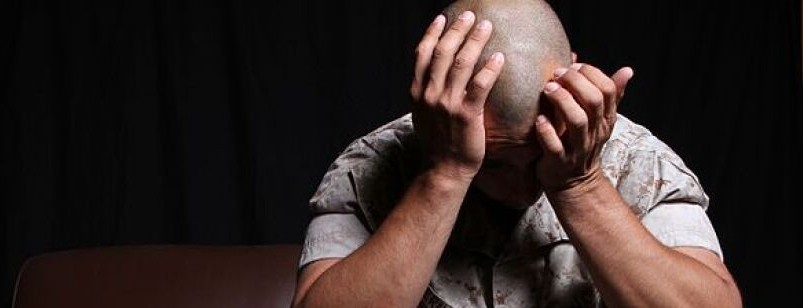
WVXU: Research aims to change effects of PTSD on brain
UC expert details cutting edge treatments at Cincinnati VA
The U.S. Department of Veterans Affairs estimates that diagnoses of post-traumatic stress disorder (PTSD) in veterans is roughly double that of the general American population.
Kate Chard, PhD, University of Cincinnati professor of psychiatry and behavioral neuroscience and director of PTSD programs at the Cincinnati VA, is conducting cutting edge research and developing new evidence-based treatments for veterans with PTSD.
"What's different about the military is we have people in the military who have the same childhood traumas as the rest of us — maybe car accidents, natural disasters — but they also can have traumas related to combat," Chard told WVXU.
Chard is leading a study analyzing blood, saliva and EEG brainwaves to find biological differences in veterans with PTSD. The Cincinnati VA also offers three main kinds of treatment: cognitive processing therapy, prolonged exposure and EMDR.
"I think the thing that makes Cincinnati really stand out is we never stop. If one treatment doesn't work for you, then let's try something else," Chard said. "We're always going to be there for you to help you address your PTSD."
Read or listen to the WVXU story.
Featured photo at top courtesy of the United States Marine Corps.
Related Stories
Love it or raze it?
February 20, 2026
An architectural magazine covered the demolition of UC's Crosley Tower.
Social media linked to student loneliness
February 20, 2026
Inside Higher Education highlighted a new study by the University of Cincinnati that found that college students across the country who spent more time on social media reported feeling more loneliness.
Before the medals: The science behind training for freezing mountain air
February 19, 2026
From freezing temperatures to thin mountain air, University of Cincinnati exercise physiologist Christopher Kotarsky, PhD, explained how cold and altitude impact Olympic performance in a recent WLWT-TV/Ch. 5 news report.
